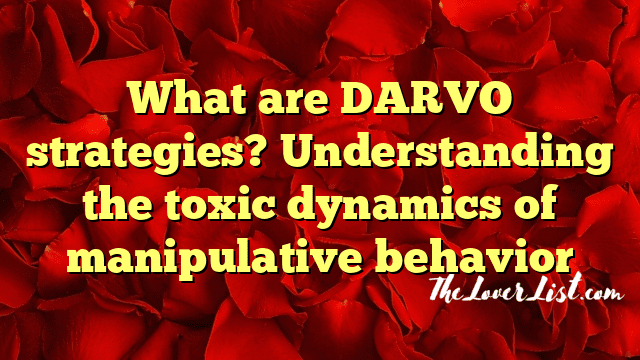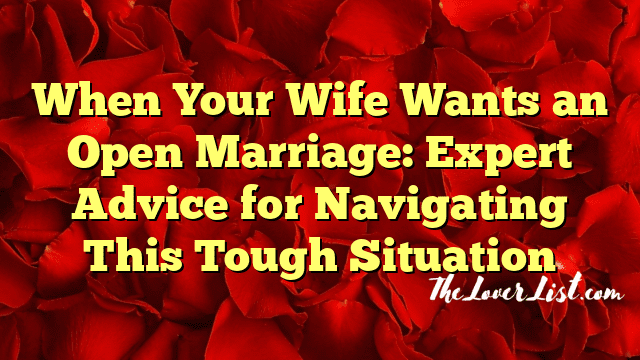Toxic or Playful? Is it okay to call your significant other names?
I’ll give this a go!
—
I remember the first time it happened.
We were play-wrestling on the couch, giggling and teasing each other like usual. But then, out of nowhere, he called me a name.
At first, I laughed it off. I knew he didn’t mean it, and it seemed like harmless fun. But as time went on, the name-calling became more frequent. And eventually, I started to wonder… was this okay?
If you’re in a relationship, chances are you’ve experienced playful teasing or joking around with your partner. But where do you draw the line between harmless banter and toxic behavior?
One of the most common examples of this is name-calling. Maybe your partner calls you something silly like “goofball” or “silly goose.” Or maybe they use more derogatory terms like “idiot” or “bitch.”
So, is it okay to call your significant other names? Or should you steer clear of this behavior altogether?
Let’s dive deeper into the psychology behind name-calling in relationships and explore the potential risks and benefits of this type of behavior.
Is it okay to call your significant other names?
In conclusion, it is never okay to call your significant other names. Name-calling is a form of emotional abuse that can have damaging effects on an individual’s mental health and well-being. If you are experiencing this kind of behavior in your relationship, it is important to seek support and address the issue immediately. Remember, you deserve to be treated with respect and kindness in all your relationships.
???? Pro Tips:
1. Words have power: Although it might seem harmless, name calling can contribute to verbal abuse and emotional harm. Choose your words wisely and be mindful of the impact they have on your partner.
2. Set boundaries: It’s important to have an open, honest conversation with your partner about what you both feel comfortable with when it comes to name calling. Creating clear boundaries can help prevent misunderstandings and hurt feelings.
3. Focus on respect: In a healthy relationship, there’s no room for name-calling. Instead, focus on showing respect and kindness towards your partner, especially when disagreements arise.
4. Apologize sincerely: If you’ve slipped up and called your partner a hurtful name, it’s important to acknowledge your mistake and apologize sincerely. Make an effort to understand why your words were hurtful and work to avoid making the same mistake again.
5. Seek help if necessary: If you or your partner are experiencing ongoing verbal abuse, it’s important to seek help. Consider reaching out to a therapist or counselor who can provide support and guidance for both of you.
Is it Okay to Call Your Significant Other Names? Understanding Verbal Abuse and Its Harmful Effects
When you love someone, handling disagreements is a part of the relationship. However, conflicts should never lead to verbal abuse. Verbal abuse can be defined as the use of words to manipulate, dominate, or control someone. It is important to understand what verbal abuse looks like, how it affects a relationship, and why it’s unacceptable.
Defining Verbal Abuse: Understanding What It Is and What It Looks Like
Verbal abuse can take many forms. It can be shouting and name-calling, or it can be more subtle, such as using sarcasm or demeaning language. Verbal abuse is not limited to a single conversation or incident. It can be a pattern that happens over time and can become more severe as time goes on. Here are some examples of verbal abuse:
It is important to recognize these behaviors as verbal abuse and not justify it as “just an argument” or “normal.” Verbal abuse is a serious issue that can have lasting effects on a relationship.
The Harmful Effects of Verbal Abuse on a Relationship
Verbal abuse can lead to negative consequences, both for the individual being abused and the relationship as a whole. The effects of verbal abuse include:
The harmful effects of verbal abuse can have a long-lasting impact, even after the abusive relationship ends. It is important to recognize the signs of verbal abuse and take action to address it.
The Link Between Verbal Abuse and Emotional Abuse
Verbal abuse is a form of emotional abuse. Emotional abuse is when a person manipulates, controls, or undermines the emotional well-being of someone else. Emotional abuse can take many forms and can include verbal abuse, as well as actions such as withholding love or affection, isolating someone from friends and family, and controlling finances. The link between verbal abuse and emotional abuse is that verbal abuse is a tool used to control someone emotionally.
Remember: Emotional abuse can be just as damaging as physical abuse and should never be ignored or justified.
Why You Shouldn’t Tolerate Name-Calling in a Relationship
One of the most common forms of verbal abuse is name-calling. Name-calling is never okay in a relationship. It can feel like a personal attack and can cause emotional distress to the victim. Moreover, this kind of behavior can escalate to become more serious forms of verbal, and even physical, abuse. No one should feel like they are being insulted or demeaned by their partner, and everyone should be treated with respect.
Signs It’s Time to End a Verbally Abusive Relationship
If you are experiencing verbal abuse in your relationship, it is important to recognize the signs. Some indicators that it may be time to end the abusive relationship include:
It is never easy to end a relationship, but it is very important to prioritize your own safety and well-being.
How to Address Verbal Abuse in a Relationship
If you are experiencing verbal abuse in your relationship, there are steps you can take to address the issue:
Remember, verbal abuse is not your fault. You are deserving of a healthy and safe relationship.
Seeking Help: Resources for Victims of Verbal Abuse
If you or someone you know is experiencing verbal abuse, there are resources available for help and support:
It takes courage to speak up about verbal abuse, but it’s important to remember that you are not alone. There is help and support available to assist in escaping a verbally abusive relationship and live a healthy, happy life.







